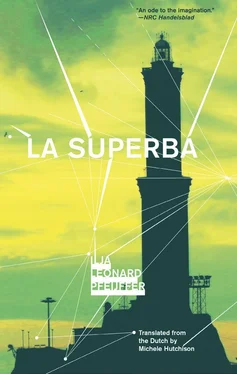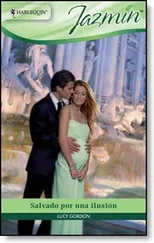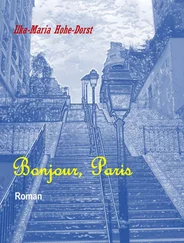“How’s business, maestro?” It was Salvatore. I felt a two-euro coin in my pocket. But of course I didn’t give it to him. “Sorry, Salvatore.” He came up to me and whispered in my ear, “The man you were sitting on the terrace with yesterday is a Moroccan. Did you know that?” “So what?” He held his finger to his lips meaningfully and hobbled off on his good but purportedly bad legs.
I knew how to get to the Cantine della Torre dei Embriaci. That’s a bar I’ll have to take you to sometime, my friend. It’s in the cellars of one of the medieval watchtowers. The space is amazingly big when you go in and renovated in the best possible taste, preserving all its authentic features. The owner is called Antonio. He’s in love with his own bar. If you’re there, it doesn’t matter whether it’s in the morning, afternoon, or evening, he’ll be busy improving his café by moving a halogen bulb or two just less than two millimeters to the left. Or to the right. When you go in it’s always empty. And if you cautiously ask Antonio whether he’s open as he stands on a bar stool tinkering with his light bulbs, he’ll say, “It was a madhouse.” Or he’ll say, “It was a madhouse yesterday.” Or, “It’s quiet now but tomorrow, pff…It’ll be a madhouse.” Then he’ll get down off his bar stool and ask what you want to drink. No, I’m saying it wrong. First he starts complaining about Italian laws, then he goes outside to smoke, then he comes back, and only then does he ask you what you want to drink. “A beer.” Wrong answer. He has sixty different kinds of beer and likes to serve them with a shot of whisky and a little cocoa powder on the foam. Which whisky would you like? And which beer? If you like, you could also have it with honey, but then it would be quite a different kind of drink. Then I’ll have to add Limoncello, too. Or, on the contrary, something salty. But perhaps he might make another suggestion. A surprise. No, don’t ask. I’ll make you a beer. You can tell me what you think of it later.
Then he brings a few snacks. My God, does he ever bring the snacks. Cured anchovies with a salt crust. “Made them myself. This afternoon.” A bowl of penne all’arrabiata with extra chili. “I always make a bit of this on Thursdays. For my friends.” Meanwhile you drink English strong ale, pimped up with two measures of grappa and a shot of Benedictine, with cinnamon on top. “I always give my friends a glass of vermouth to go with it. Maybe you’d like one? With or without basil and brown sugar? You know, my friends are the reason I own this bar. I like to give something back from time to time. Shot of Grand Marnier in the vermouth?”
His bar is devoted to the memory of Fabrizio De André, the brilliant poet and singer whom almost no one outside of Genoa knows. I know who he was. He was really brilliant. Antonio has constructed a wall of memorabilia: photos and paintings and a real guitar. Only his music is played in this bar, preferably on vinyl on a crackly record player in the corner. “I knew his mother. Her aunt was friends with my gym teacher and she was his cook. That’s how.”
It was pretty much empty when I went in. “Pfff. It was a madhouse this evening. Look at all these dirty glasses. All friends of mine. But I’m happy to oblige.” There were still a couple of tufts of windswept people. A valiant small girl took the guitar down from the wall and began to play. It was the official sacred guitar but it was allowed. She sang. She sang Fabrizio De André songs. I’ve never heard anything like it. She sang for an almost empty bar and she sang with a voice that gave me goose bumps. She sang very differently from Fabrizio De André, but with deadly accuracy, taking no prisoners. It was also the fact that this was Genoa and that this was all living culture and that a valiant girl was singing all those songs I really love just like that in a bar in the night, so unexpectedly and on the holy guitar and almost solely for me — I sat in the corner and wept. Tears poured down my cheeks. They really did, my friend, I know you don’t believe me. And for one reason or another, I had to think of her, the waitress at the Bar of Mirrors, the most beautiful girl in Genoa, and I thought how wonderful it would be to share this moment with her, which made me cry all the more.
And there I sat in Genoa without a handkerchief. “That girl,” I said to Antonio. “That girl who sang, I’d like to thank her if you see her again. She’s really special.”
“Oh sure, with pleasure.” Then he bent his head over my tear-streaked cheeks and admitted, “She has a lovely cunt that one, it’s true.”
21.
These days I’m visiting the Bar of Mirrors every day for the aperitif, from around five until they close at nine and after closing time I hang around the neighborhood for a bit, and naturally you understand why, my friend. She works there every day during exactly those hours. And when she comes out around ten, after cleaning up, in her normal clothes, carrying a scooter helmet under her arm, sometimes I manage to walk past by complete coincidence and say “Ciao” to her before she goes home. Or to her boyfriend’s flat with his ugly gelled head, the bastard. Or maybe they live together. No, that’s not possible. It’s simply not allowed.
Usually I sit on the terrace on my own. Sometimes the signora drops by, but when Bernardo Massi, the old man with the wild white hair and the wild Hawaiian shirts, rumored to be powerfully rich, is there, she prefers his company to mine. And he’s almost always there. He’s the owner of the entire palazzo which the Bar of Mirrors is part of, it seems. But I like sitting on my own. That way I can watch people undisturbed. I’m afraid she is starting to become a real obsession. I get goose bumps when I see her. She glides before my eyes like a poem written in calligraphy. She’s like an elegant swirl in an art nouveau ornament. I can’t keep my eyes off her. And I time it so that I take the last sip of my Negroni when she comes out of the porcelain grotto onto the terrace so that I can order my next drink from her rather than from one of her nondescript colleagues. I’m as polite and respectful toward her as possible. I never try to speak to her, except to order something. That’s also because I just don’t dare. I know it sounds crazy but I really don’t dare. I’m afraid to ruin the fragile fairy tale by saying something trite. Meanwhile, I’m waiting for the moment when she’ll say something to me.
With this in mind, I always sit writing on the terrace. Almost everything I’m giving you to read has been written there, in that outside space with the dark green tables on Salita Pollaiuoli with a view of her. Maybe that’s the reason I write about her so much. Maybe that’s the reason I write so much, my friend. Just be thankful to her.
Because sooner or later her curiosity will have to be piqued. If you have a customer who comes back every day, polite and irreproachable in his newly-purchased Italian wardrobe, which obviously must have cost a fortune, with a real panama hat, everyone knows how much they cost, a foreigner who has clearly settled here and who sits at a table on his own every evening writing in small, meticulous handwriting in a Moleskine notebook — an artist but also a professional with an income who is probably a celebrity in his home country — then sooner or later your curiosity would be piqued, wouldn’t it? “May I ask what you are writing, sir?” “Oh, just some notes for myself. Actually I’m a poet.” “Really? A poet? I’ve always wanted to meet a poet. Are you famous?” “Ach, what can I say…?” “How exciting! Will you write a poem about me sometime?” “With pleasure. But I’d have to get to know you better first.” Name. Phone number. Date, kiss, and into the sack. And the bastard with the gelled head goes to the back of the line.
Читать дальше












